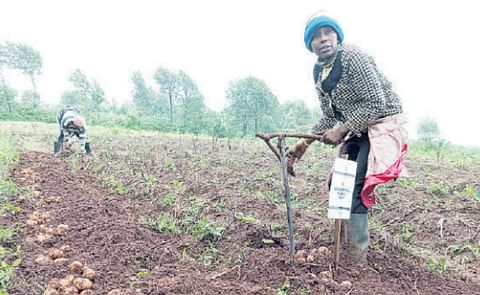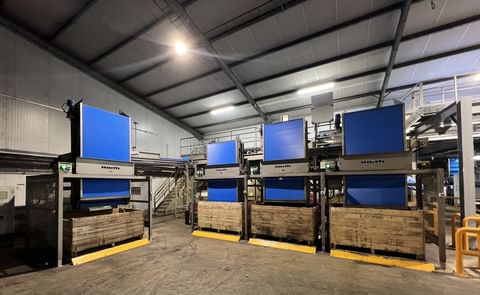Potato processors in the United Kingdom and their growers express again extreme concern about the potato supply, due to wet weather and potato varieties grown for processing in particular affected.
Extreme weather hits potato processors in the UK for the second year in a row

Recently published figures from AHDB Potatoes confirm that, despite the wettest harvest year since 2012 and the third worst autumn on record, GB growers were able to successfully battle through and lift up to 89% of the 2019 potato harvest.
However, whilst the AHDB headline appears positive, the picture is very different across potato sectors and regions.
GB potato processors and their growers remain extremely concerned. Since the report’s publication on 15 November weather conditions have worsened, with much of the remaining crop still in field and not be able to be lifted.
A further concern for GB potato processors is that several varieties which are grown specifically for processing are typically late harvested, to allow for the potatoes to bulk.
Potato Tuber Bulking
Potato tuber bulking in field is usually the longest stage in potato growth. It extends from 8 to 14 weeks after planting (5 to 11 weeks after emergence) for early-season varieties and is longer for later season varieties.
Many later season processing varieties, intended for storage and use over the winter, were still in field bulking when the poor weather started, meaning that growers didn’t get the chance to even begin their harvest and these potatoes remain in the field.
AHDB reports that for the North West only 67% of the regional potato area had been lifted by 12 November.
For Yorkshire (which in October received 175% of ‘normal’ rainfall) a staggering 21% of the harvest has yet to be lifted.
These are exactly the regions where these late harvest processing varieties are being grown, and as a result the GB processing sector is expected to be disproportionately affected.
Concern is also mounting around the quality of the potatoes going into storage. Harvesting under wet conditions with heavy soil contamination (as in Yorkshire) will usually increase the risk of damage at harvest and crop loss in store. Whilst there are limited reports of rot or disease in store it remains a real threat to the sector and could significantly disrupt supply.
The threat to the 2019 harvest is compounded by the fact that 2018 was one of the worst GB potato harvests in recent years, with volumes significantly lower than average and processors noting a direct impact on the quality of available raw materials.
Andrew Curtis Director General for the Potato Processors’ Association:
“This is the second consecutive year that the potato harvest has been impacted by adverse weather conditions.”
“A high level of concern remains across the industry, and in particular within the processing sector, due to the fact that in some regions up to 23% of the crop still remains in the ground.”
GB potato processors are working with growers on scheduling to ensure maximum use of the usable crop and the whole of the supply chain is working together to ensure that they can continue to provide high quality finished products.
Processors are limited, to an extent, by the physical characteristics of specific varieties required for frozen potato and crisp production, but will of course take a pragmatic and flexible approach on specifications wherever possible.












